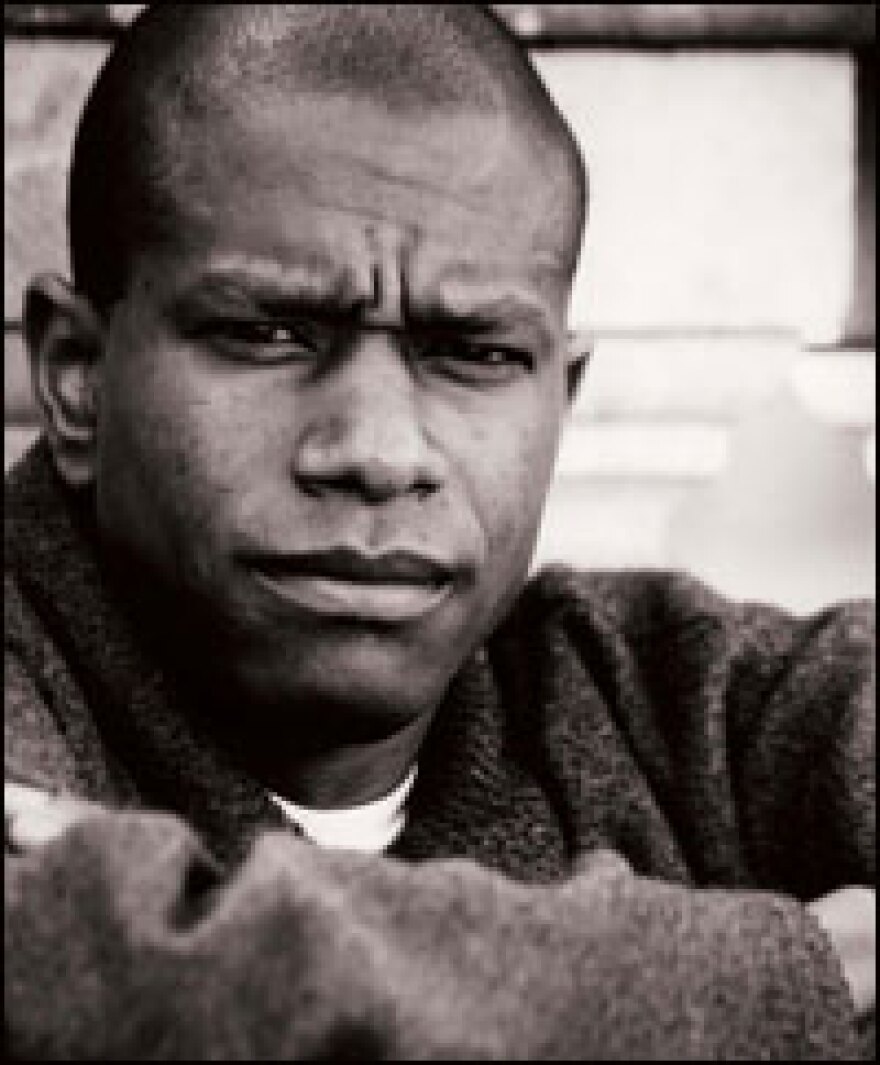
There are books, and then there are "Books We Like." Each week in Books We Like, our critics review their top picks for new fiction and nonfiction.
Every serious black American writer must sooner or later reckon with Invisible Man, and Paul Beatty — a bold wit cloaking high ambitions in low comedy — launches his third novel with a perfect travesty of Ralph Ellison.
The prologue of the Ellison classic sees its protagonist taking shelter in his surreal Manhattan lair, a hideout wired with 1,369 light bulbs and rigged with a phonograph playing Louis Armstrong's "(What Did I Do to Be So) Black and Blue." Contrast Ellison's nameless hero with Beatty's Ferguson W. Sowell, also known as DJ Darky, a turntable artist. Ferguson begins his adventures in the solitude of a tanning booth in Germany — UV light recalling the glare of his native Los Angeles, CD player rumbling through one of his own sound collages, narration declaiming that "after fourteen hundred years the charade of blackness is over. ... The Negro is now officially human. Everyone, even the British, says so."
In L.A., Ferguson mixed what might be the perfect beat — an inimitable, irresistible groove — but to ratify its transcendent noise, he needs the blessing of an elusive jazz genius called the Schwa, whose own "sound, like the indeterminate vowel, is unstressed, upside-down, and backward." In pursuit, Ferguson makes for Berlin, just before the wall falls, where he curates a jukebox at a pick-up bar, meets daffy spies and besotted Frauleins, and spits casually brilliant riffs on America and her music. A stranger in a strange land, he pays special attention to the bandleaders Sun Ra and George Clinton — outsiders so far out that they style themselves as brothers from another planet.
There are very few novelists with Beatty's swinging sense of play, and none — except maybe fellow freakazoid Thomas Pynchon — with the knowledge and nerve to sample John Keats, Afrika Bambaataa, and From Here to Eternity as he does in this sui generis piece of heartfelt absurdism. Give it a spin.
Copyright 2023 NPR. To see more, visit https://www.npr.org. 9(MDM3NjYwMjA5MDE1MjA1MzQ1NDk1N2ZmZQ004))

